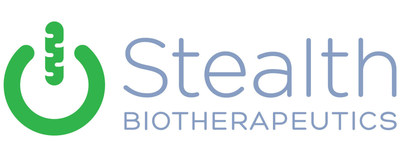Stealth BioTherapeutics Reports Positive Pre-IND Meeting for Duchenne Muscular Dystrophy
Stealth BioTherapeutics (Nasdaq: MITO) announced a positive update from its pre-IND meeting with the FDA regarding its Duchenne muscular dystrophy (DMD) program. The FDA's Division of Cardiology and Nephrology approved Stealth's proposal to assess myocardial fibrosis as a surrogate endpoint for their upcoming clinical trial. This is critical as heart failure is a leading cause of mortality in DMD. The company aims to submit an IND in the first half of the year and initiate trials later, pending regulatory feedback. New preclinical data shows elamipretide may enhance dystrophin expression.
- FDA approved the use of myocardial fibrosis as a surrogate endpoint for the DMD clinical trial, indicating support for the trial design.
- Stealth plans to submit an IND in the first half of the year and potentially initiate clinical trials in the second half, showing progress toward development.
- New preclinical data suggests elamipretide significantly improves dystrophin levels in relevant models, enhancing the product's potential.
- Dependency on successful regulatory feedback and financing for clinical trial initiation raises uncertainty regarding timelines and execution.
Insights
Analyzing...
BOSTON, Dec. 20, 2021 /PRNewswire/ -- Stealth BioTherapeutics Corp (Nasdaq:MITO), a clinical-stage biotechnology company focused on the discovery, development, and commercialization of novel therapies for diseases involving mitochondrial dysfunction, today reported an update on its pre-IND meeting with the FDA's Division of Cardiology and Nephrology (DCN) regarding its Duchenne muscular dystrophy (DMD) development program, including reaching alignment on Stealth's proposal to assess the progression of myocardial fibrosis as a surrogate endpoint for its planned clinical trial.
"We applaud DCN for recognizing the importance of assessing myocardial fibrosis in DMD, where progressive fibro-fatty infiltration starting as early as middle childhood is associated with a loss of left ventricular function and adverse cardiovascular events," said Reenie McCarthy, Chief Executive Officer at Stealth. "This progressive cardiomyopathy can lead to heart failure, which is the leading cause of early mortality in DMD, and remains an important unmet need in this devastating disease. We look forward to continued dialogue with DCN regarding a proposed approval pathway on the basis of this surrogate endpoint, which will include ascertaining elamipretide's effect on this biomarker in our proposed clinical trial and designing an appropriate postmarketing confirmatory study."
The purpose of the pre-investigational new drug (IND) meeting was to discuss Stealth's proposed development plan in DMD. DCN agreed that myocardial fibrosis assessed by magnetic resonance imaging (MRI) using late gadolinium enhancement (LGE) could serve as a primary endpoint for Stealth's proposed new clinical trial. DCN also outlined the steps that could support an eventual determination that reducing the progression of fibrosis is reasonably likely to lead to clinical benefit in DMD, which would be necessary for an Accelerated Approval based on this endpoint. DCN signaled alignment with other key aspects of the clinical trial design, while recommending that additional information be submitted with Stealth's planned IND on others. Stealth expects to engage in further dialogue with DCN early next year as it moves toward an IND submission during the first half of the year and a potential trial initiation during the second half of the year, subject to further regulatory feedback and financing.
"End-stage heart failure is the main cause of death in DMD, so that even as we applaud the introduction of new therapies and treatment modalities to address other aspects of the disease, we have been asking ourselves: Is the DMD heart 'built to last'?" explained Pat Furlong, founding president and chief executive officer, Parent Project Muscular Dystrophy (PPMD). "We appreciate the FDA's willingness to listen to the voice of the DMD community by outlining novel pathways to speed the development of therapies for the devastating cardiomyopathy that affects young boys and men living with DMD, and we are pleased to welcome Stealth to the dedicated community of researchers, clinicians and industry who have partnered with us over the last 25+ years to find treatments for all people living with DMD."
Stealth has also recently reported new preclinical data demonstrating that administration of elamipretide with an exon-skipping phosphorodiamidate morpholino oligomer (PMO), a therapeutic class that has already garnered regulatory approval and commercialization for its effects in skeletal muscle, significantly improves dystrophin expression levels in the X-linked muscular dystrophy (mdx) mouse model.
About Stealth
We are a clinical-stage biotechnology company focused on the discovery, development, and commercialization of novel therapies for diseases involving mitochondrial dysfunction. Mitochondria, found in nearly every cell in the body, are the body's main source of energy production and are critical for normal organ function. Dysfunctional mitochondria characterize a number of rare genetic diseases and are involved in many common age-related diseases, typically involving organ systems with high energy demands such as the heart, the eye, and the brain. We believe our lead product candidate, elamipretide, has the potential to treat both rare metabolic cardiomyopathies, such as Barth syndrome, DMD and Friedreich's ataxia, primary mitochondrial myopathy caused by nuclear DNA mutations, as well as ophthalmic diseases entailing mitochondrial dysfunction, such as dry age-related macular degeneration and Leber's hereditary optic neuropathy. We are evaluating our second-generation clinical-stage candidate, SBT-272, and our new series of small molecules, SBT-550, for rare neurological disease indications following promising preclinical data. We have optimized our discovery platform to identify novel mitochondria-targeted compounds which may be nominated as therapeutic product candidates or utilized as mitochondria-targeted vectors to deliver other compounds to mitochondria.
Forward-looking Statements
This press release contains forward-looking statements within the meaning of The Private Securities Litigation Reform Act of 1995. Such forward-looking statements include those regarding Stealth BioTherapeutics' plans, strategies and expectations for its DMD programs, including its planned clinical trials of elamipretide for the treatment of DMD; its plans for the potential submission of an IND; its expectations regarding regulatory interactions; and the potential benefits of Stealth BioTherapeutics' product candidates. Statements that are not historical facts, including statements about Stealth BioTherapeutics' beliefs, plans and expectations, are forward-looking statements. The words "anticipate," "expect," "hope," "plan," "potential," "possible," "will," "believe," "estimate," "intend," "may," "predict," "project," "would" and similar expressions are intended to identify forward-looking statements, although not all forward-looking statements contain these identifying words. Stealth BioTherapeutics may not actually achieve the plans, intentions or expectations disclosed in these forward-looking statements, and you should not place undue reliance on these forward-looking statements. Actual results or events could differ materially from the plans, intentions and expectations disclosed in the forward-looking statements as a result of known and unknown risks, uncertainties and other important factors, including: Stealth BioTherapeutics' ability to obtain additional funding and to continue as a going concern; the impact of the COVID-19 pandemic; the ability to successfully demonstrate the efficacy and safety of Stealth BioTherapeutics' product candidates and future product candidates; the preclinical and clinical results for Stealth BioTherapeutics' product candidates, which may not support further development and marketing approval; the potential advantages of Stealth BioTherapeutics' product candidates; the content and timing of decisions made by the FDA, the EMA or other regulatory authorities, investigational review boards at clinical trial sites and publication review bodies, which may affect the initiation, timing and progress of preclinical studies and clinical trials of Stealth BioTherapeutics product candidates; the possibility that the FDA will not file the planned Barth NDA following the Company's anticipated submission of it; Stealth BioTherapeutics' ability to obtain and maintain requisite regulatory approvals and to enroll patients in its planned clinical trials; unplanned cash requirements and expenditures; competitive factors; Stealth BioTherapeutics' ability to obtain, maintain and enforce patent and other intellectual property protection for any product candidates it is developing; and general economic and market conditions. These and other risks are described in greater detail under the caption "Risk Factors" included in the Stealth BioTherapeutics' most recent Annual Report on Form 20-F filed with the Securities and Exchange Commission ("SEC"), as well as in any future filings with the SEC. Forward-looking statements represent management's current expectations and are inherently uncertain. Except as required by law, Stealth BioTherapeutics does not undertake any obligation to update forward-looking statements made by us to reflect subsequent events or circumstances.
Investor Relations
Stern Investor Relations
Janhavi Mohite, 212-362-1200
IR@StealthBT.com
![]() View original content to download multimedia:https://www.prnewswire.com/news-releases/stealth-biotherapeutics-reports-positive-pre-ind-meeting-for-duchenne-muscular-dystrophy-301447896.html
View original content to download multimedia:https://www.prnewswire.com/news-releases/stealth-biotherapeutics-reports-positive-pre-ind-meeting-for-duchenne-muscular-dystrophy-301447896.html
SOURCE Stealth BioTherapeutics Inc.








